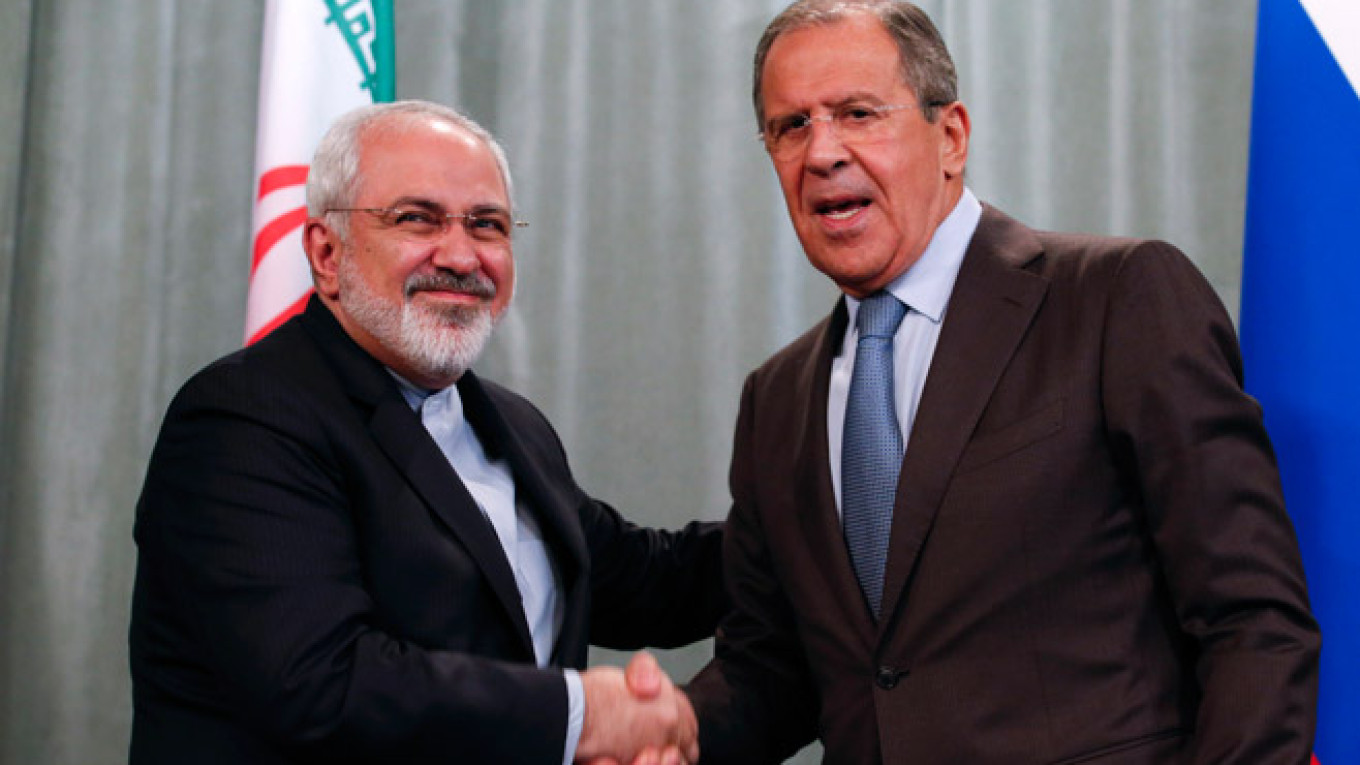Russia and Iran will discuss launching production lines for Tupolev Tu-204 airliners in Iran as the two countries — both paid-up members of the West's Black List — boost their economic cooperation, a source close to the negotiations told the PRIME news agency Tuesday.
The unidentified source told the agency an intergovernmental commission had broached the question "in one form or another" in the past, but without result. The commission will discuss it during a meeting Tuesday, the source said.
A range of energy and nuclear power agreements are also expected to be signed on Tuesday, following a meeting between Russian Energy Minister Alexander Novak and his Iranian counterpart, Hamid Chitchian.
The Russian government is pushing hard to revamp Russia's domestic aircraft industry, which has lost much of its Soviet might due to decades of underinvestment, after Western sanctions over the conflict in Ukraine highlighted the vulnerability of Russian airlines, which fly mainly Boeing and Airbus planes leased from Europe and the U.S.
On Monday, Russia announced it would work with China to produce a new long-range airliner.
The Tu-204 is a twin-engine regional airliner that can carry about 160 to 200 people, and roughly stacks up to the massively successful Boeing 737 and Airbus A320.
Russia earlier attempted to sell Russian-made Tu-204 aircraft to Iran, but the scheme was derailed by U.S. Export restrictions, since the airplane uses engines made by U.S. manufacturer Pratt & Whitney.
Reuters reported in April that Russia and Iran were negotiating an oil-for-goods deal worth $20 billion that would undermine Western sanctions against the Islamic Republic.
A Message from The Moscow Times:
Dear readers,
We are facing unprecedented challenges. Russia's Prosecutor General's Office has designated The Moscow Times as an "undesirable" organization, criminalizing our work and putting our staff at risk of prosecution. This follows our earlier unjust labeling as a "foreign agent."
These actions are direct attempts to silence independent journalism in Russia. The authorities claim our work "discredits the decisions of the Russian leadership." We see things differently: we strive to provide accurate, unbiased reporting on Russia.
We, the journalists of The Moscow Times, refuse to be silenced. But to continue our work, we need your help.
Your support, no matter how small, makes a world of difference. If you can, please support us monthly starting from just $2. It's quick to set up, and every contribution makes a significant impact.
By supporting The Moscow Times, you're defending open, independent journalism in the face of repression. Thank you for standing with us.
Remind me later.


